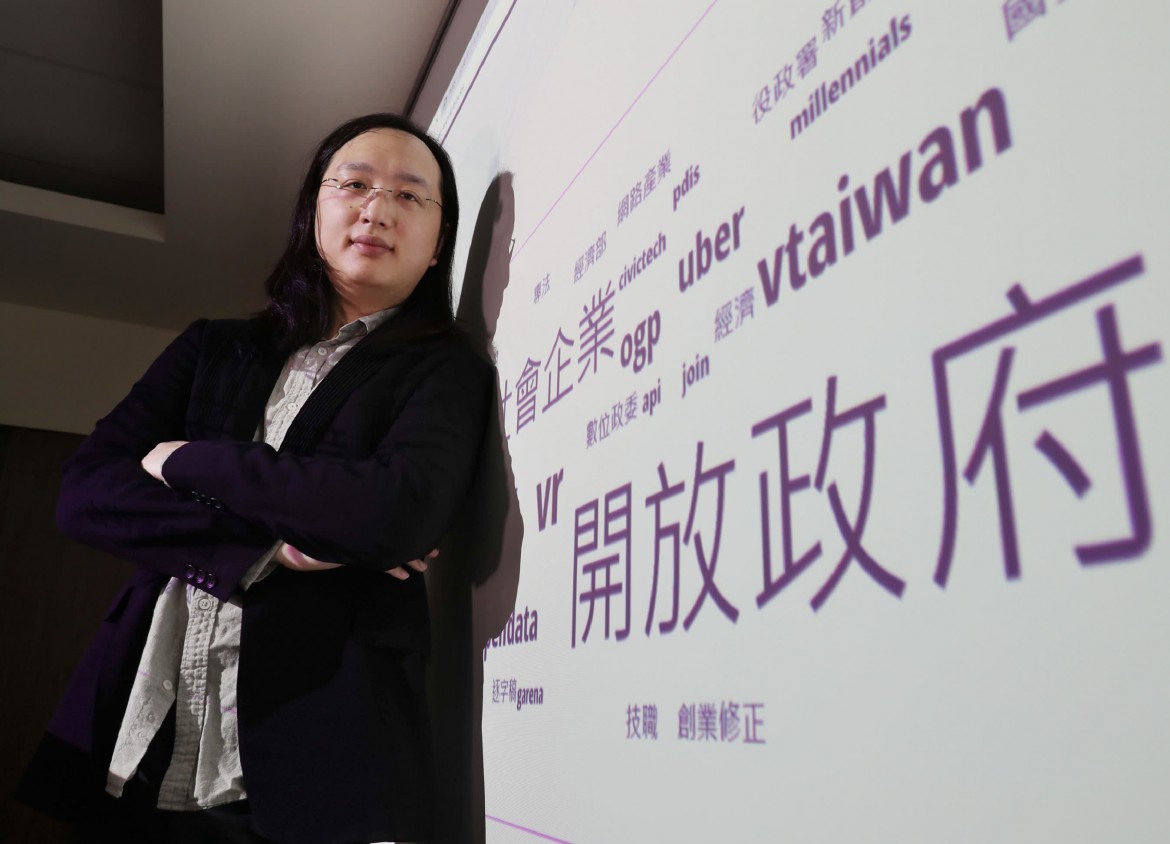Report
The ‘peer-to-peer democracy’ of Audrey Tang
Taiwan’s Digital Minister is a proponent of ‘reality hacking,’ which seeks to change the real and virtual worlds by applying technological upgrades to democratic institutions.

A hacker, a transgender person and Taiwan’s Digital Minister since 2016 (a minister without portfolio), Audrey Tang has been included among the 10 most influential people in the world of digital government. She is a former Apple consultant and the manager of innovative platforms that are part of what she has recently called “crowdsourced democracy” in Taiwan.
Recently she held a guest talk (via video linkup) at John Cabot University in Rome as part of a series of meetings organized by the Department of Communications and Media Studies. (Up next in the series is Shu Lea Cheang, a Taiwan-based artist who has collaborated with Paul B. Preciado at the Biennale in Venice and Tang herself.)
A quick and straightforward speaker, Tang appeared on a screen that also displayed the questions from which she introduced her many arguments about transparency and programs to make administrations more receptive and functional. Afterward, she answered live questions from students. The topics, of course, were all related to her experience, and more generally to all that concerns the Internet and its novelties, artificial intelligence, the Internet of Things and the singularity. Tang brings a counterintuitive approach to these topics, injecting a new perspective into concepts that are taken for granted, or often simply thrown around because they’re considered “cool” (such as her proposal to conceive “virtual reality” as “shared reality,” or “singularity” as “plurality”).
When we see “virtual reality,” let’s make it a shared reality.
When we see “machine learning,” let’s make it collaborative learning.
When we see “user experience,” let’s make it about the human experience.
When we hear “the singularity is near,” let us remember: the Plurality is here.Audrey Tang
Tang first rose to fame during the 2014 protests, which featured a large part of Taiwan’s civil society rising up in opposition to a free trade agreement with China, and she has always been considered something of a genius (she started programming in Perl when she was just 12 years old). But her “techno-political” proposals are quite unique in the Asian world, and one can easily relate them with similar experiences in Europe, such as the activities set up by Francesca Bria in Barcelona during Ada Colau’s first term as mayor.
Tang’s approach is, in effect, what has been called “reality hacking” among the IT crowd — using technological tools to change not only the virtual world, but also the real one, while doing so from within the already-existing democratic institutions.
As she wrote recently in a piece in the New York Times in which she presented her approach to technology applied to politics: “Democracy improves as more people participate. And digital technology remains one of the best ways to improve participation — as long as the focus is on finding common ground and creating consensus, not division.”
This improvement is achieved through a number of tools: vTaiwan (which stands for “virtual Taiwan”) brings together representatives of the public, private and social sectors to discuss political solutions to problems related to the digital economy. “Though the government is not obligated to follow vTaiwan’s recommendations (a policy that may soon change), the group’s work often leads to concrete action,” Tang writes. For example, petitions that reach a certain threshold of comments and signatories compel government ministers to give an answer. Indeed, according to Tang, only a transparent and participatory politics can make it possible, for instance, to cut down on the phenomenon of fake news.
During her speech at the John Cabot University even, she approached these themes with particular attention given to the transparency of government activities, so that every citizen can participate in the formation of norms, creating a true bridge between the two sides with an instrument that is open, accessible and usable by other governments and institutions.
Of course, for this to be possible, it is most necessary that the willingness of the government bodies should be there (otherwise, as mentioned by Tang, a kind of reversed transparency can take hold: the state and the government know everything about the citizens, but the converse is not true). “These platforms,” Tang explained, “allow the citizens to interact on a daily basis, not just once in a while, with the institutions.”
Originally published at https://ilmanifesto.it/la-democrazia-peer-to-peer-di-audrey-tang/ on 2019-11-17
